Manoj Kumar (1937–2025): The Enduring Icon of Cinematic Patriotism in India
Manoj Kumar, the venerable Indian film actor, writer, director, and cultural architect whose name became synonymous with cinematic patriotism, died in Mumbai on April 5, 2025, at 87. Appreciated across generations as "Bharat Kumar," his passing signals not merely the departure of an artist but the closure of a towering chapter in the narrative of Indian popular culture. Over a career spanning five decades, Kumar constructed a moral and emotional bridge between the silver screen and the Indian conscience, becoming both a chronicler and custodian of the nation’s post-independence identity.
A Childhood Disrupted by Partition
Born Harikrishna Giri Goswami on July 24, 1937, in Abbottabad, a town now in Pakistan, Manoj Kumar’s formative years were shaped by the cataclysm of the Partition.
In 1947, his family migrated to Delhi, joining the exodus of millions who had been displaced by history. This experience of loss and exile seeped into his worldview and creative instincts.
His longing for a cohesive, peaceful, and sovereign India would become the cornerstone of his cinematic philosophy.
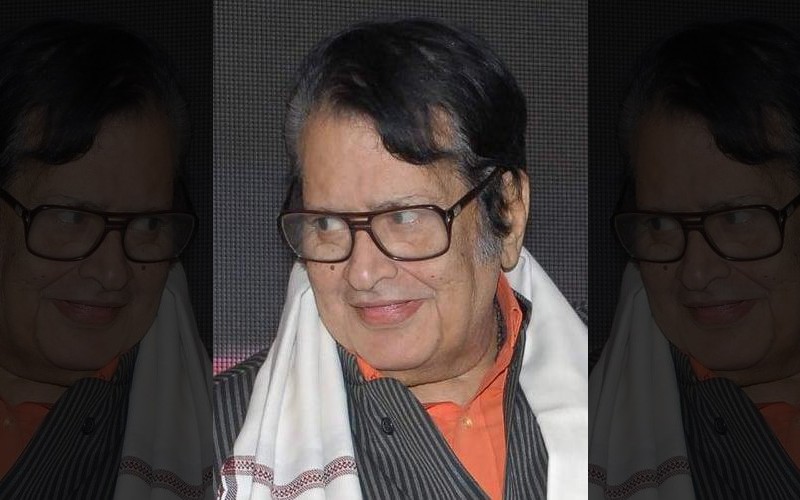 file photo of Manoj Kumar. Photo courtesy: Wikipedia
file photo of Manoj Kumar. Photo courtesy: Wikipedia
The Evolution of a Cinematic Craftsman
Adopting the screen name Manoj Kumar as a tribute to Dilip Kumar’s character in Shabnam (1949), he began his acting career with the film Fashion (1957).
Initial years saw him finding his footing with modest roles, but the 1960s heralded a new dawn. His breakout performances in Hariyali Aur Rasta (1962), Ghar Sansar (1963), and Woh Kaun Thi? (1964) established him as a romantic lead with serious gravitas.
In Woh Kaun Thi? directed by Raj Khosla, Kumar played a haunted doctor entangled in mystery and melancholy opposite Sadhana. The film’s eerie musicality and noir sensibility found perfect harmony in Kumar’s introspective performance, a precursor to his later, more ideologically charged roles.
Himalaya Ki God Mein (1965) saw him portray a compassionate doctor navigating rural poverty and tradition, offering a nuanced study of idealism without artifice.
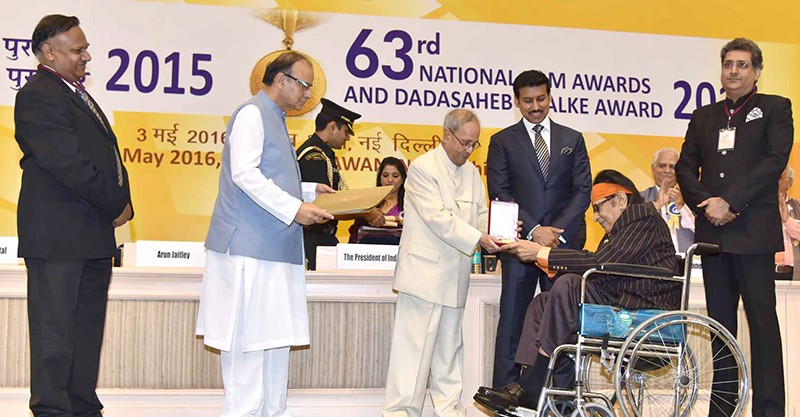 Then President of India Pranab Mukherjee presenting the Dadasaheb Phalke Award to Manoj Kumar at the 63rd National Film Awards in 2016. Photo: PIB
Then President of India Pranab Mukherjee presenting the Dadasaheb Phalke Award to Manoj Kumar at the 63rd National Film Awards in 2016. Photo: PIB
The Bhagat Singh Moment and The Birth of Bharat Kumar
The historical drama Shaheed (1965) marked a crucial inflection point in his career. Kumar combined steely conviction with tender vulnerability as the revolutionary martyr Bhagat Singh. His restrained intensity, avoidance of overt melodrama, and fidelity to historical emotion earned critical acclaim and the public’s enduring affection. This performance was not merely acting; it was the embodiment.
Shaheed opened a path that Kumar would follow with unwavering commitment. He began writing and directing films, each infused with a nationalist ethic and social conscience.
In Upkar (1967), he created the archetype of Bharat, who personifies India’s spiritual and agrarian soul. Inspired by Lal Bahadur Shastri’s slogan "Jai Jawan Jai Kisan," the film highlighted the dual heroism of the farmer and the soldier. The script, dialogue, and musical composition fused into a nationalistic anthem. Songs like "Mere Desh Ki Dharti" became popular culture folklore.
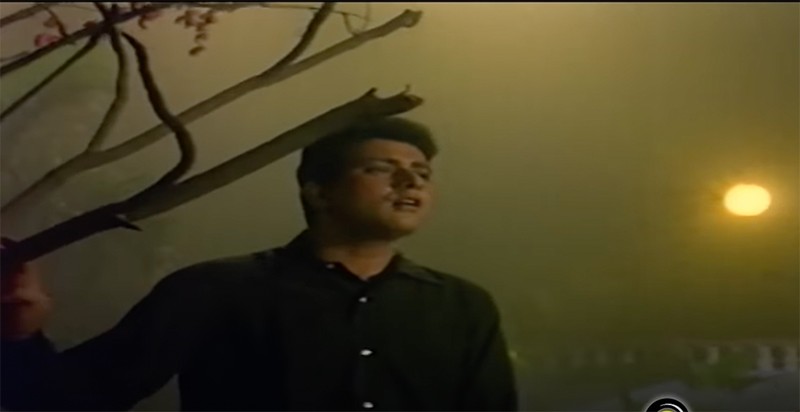 Manoj Kumar in Do Badan. Photo courtesy: YouTube
Manoj Kumar in Do Badan. Photo courtesy: YouTube
Acting Across Genres and Depths
Kumar was not confined to patriotic cinema alone. His range extended across diverse genres: romantic tragedy (Do Badan, 1966), historical epic (Sanyasi, 1975), and thrillers (Gumnaam, 1965). In Do Badan, he delivered one of his most moving performances, a blind man sacrificing love for duty. His chemistry with Asha Parekh was deeply emotive, and his use of silence as a performance was particularly striking.
In Patthar Ke Sanam (1967) and Neel Kamal (1968), Kumar brought a quiet dignity to roles that could have veered into melodrama. Even in ensemble casts, his presence was steady, almost meditative, never seeking to overshadow but permanently anchoring the narrative.
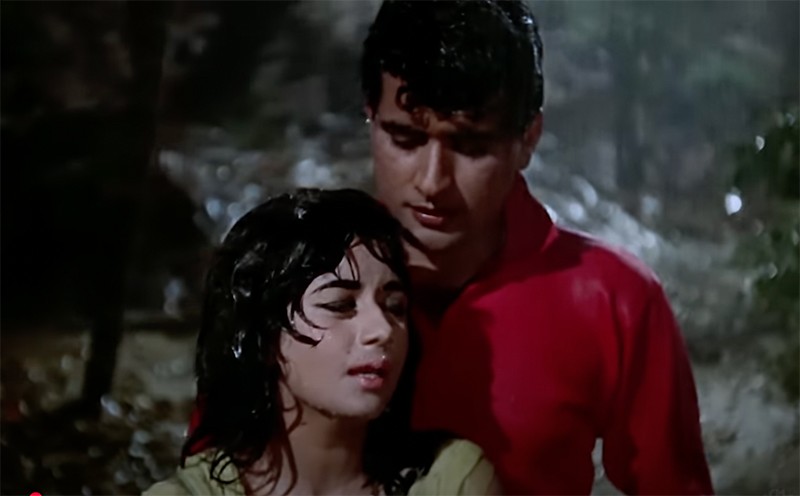 Manoj Kumar with Nanda in Gumnaam. Photo courtesy: YouTube
Manoj Kumar with Nanda in Gumnaam. Photo courtesy: YouTube
The Trilogy of Conscience: Purab Aur Paschim, Roti Kapda Aur Makaan, and Kranti
Purab Aur Paschim (1970) saw Kumar donning multiple hats as an actor, writer, and director. Here, he tackled the dichotomy between Eastern values and Western decadence, offering critique and empathy. His portrayal of Bharat, a foreign-returned Indian grappling with identity—was tender, didactic, and evocative. The film’s climax, in which Kumar delivers an impassioned monologue on Indian civilization, remains etched in cinematic memory.
With Roti Kapda Aur Makaan (1974), Kumar offered a searing exploration of the common man’s struggle. His character, Bharat, represents the ideal citizen betrayed by the system. The film was socially progressive, featuring women’s emancipation, unemployment, and corruption. Kumar’s performance was impassioned but grounded, encapsulating the exhaustion and resilience of India's working class.
In Kranti (1981), Kumar assembled one of the most ambitious historical narratives of the time, featuring Dilip Kumar in a landmark comeback role. As Sanga, the revolutionary, Kumar gave one of his most formidable, measured, stoic, and layered performances. The film’s grandeur, reverence for freedom fighters, and box-office success elevated Kumar’s standing to that of a national storyteller.
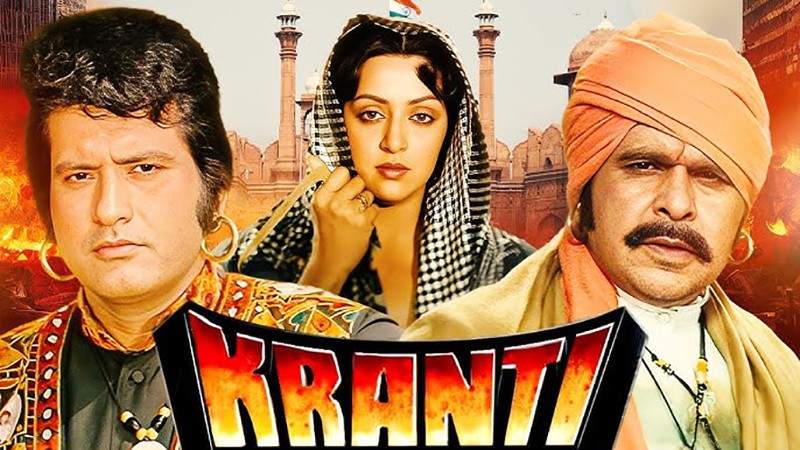 A poster of Kranti
A poster of Kranti
Legacy as a Director and Visionary
While acting earned him public love, directing revealed his artistic soul. His directorial ventures were meticulous in visual composition, moral architecture, and philosophical undercurrents. He had an uncanny ability to layer ideological subtext beneath melodramatic structures, ensuring broad appeal while provoking reflection. His long-time collaboration with music director Kalyanji-Anandji produced timeless songs that remain staples in Indian music.
Critics often debated his sentimentalism, yet even his detractors could not deny the cultural influence of his vision. He resisted the tides of cynicism that marked later decades, preferring to anchor his films in moral optimism. He was not chasing trends; he was establishing them.
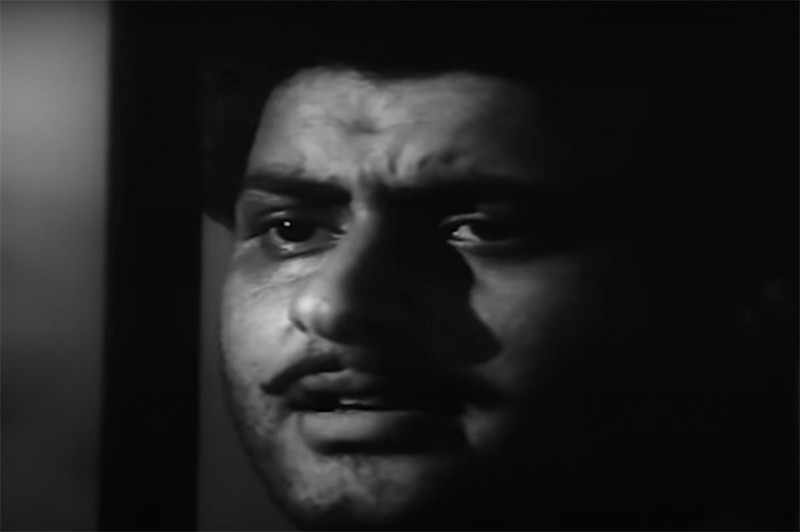 Manjo Kumar in Saheed . Photo courtesy: YouTube
Manjo Kumar in Saheed . Photo courtesy: YouTube
Honors, Recognition, and Influence
Kumar received the Filmfare Lifetime Achievement Award in 1999, seven Filmfare Awards in multiple categories, including Best Director and Best Story, and the Padma Shri in 1992. In 2015, the Government of India conferred upon him the Dadasaheb Phalke Award—an overdue tribute to a man who gave his art, heart, and ideology to cinema.
His influence reached beyond the screen. Politicians, educators, and activists cited his work in speeches and classrooms. His screen dialogues entered everyday parlance, and his moral frameworks influenced family discussions across decades. To many, Manoj Kumar was more than an actor; he symbolized the India that dared to dream.
The Final Curtain
Kumar retreated from public life in his later years, appearing occasionally at film award functions or in commemorative interviews. He spoke little, preferring the quietude of reflection. His presence, however, loomed large. New-age directors like Rakeysh Omprakash Mehra and Ashutosh Gowariker openly acknowledged their debts to his vision. Actors like Aamir Khan, Akshay Kumar, and John Abraham publicly cited his influence on their socially conscious work.
His death triggered a nationwide wave of mourning. The Indian flag draped over his body was not ceremonial but symbolic. In death, as in life, he remained tethered to the idea of India. The funeral, attended by luminaries across cinema and politics, bore witness to a nation saying farewell to a man and an epoch.
Epilogue: The Man, The Mirror, The Monument
Manoj Kumar was not flawless. His films were, at times, polemical, and his sentimentality could become overbearing. Some of the patriotic quotients in his films seemed contrived and out of context. Thinking audience often cringed at his unabashed and sometimes crass patriotic rhetorics. But in an age increasingly dominated by irony and detachment, his sincerity was disarming. He believed in the power of cinema to transform, inspire, and uplift. That belief, etched in every frame he created, will outlive him.
As the pyres fade and the screen dims, Manoj Kumar’s voice will echo in India's cultural conscience. His portrayal of the everyman, the patriot, the idealist, and the philosopher will not vanish. They are woven into the collective memory of a nation that once saw itself in his eyes.
He is survived by his wife, Shashi Goswami, two sons, and a timeless legacy that will endure in celluloid, song, and soul.
“Main Bharat hoon, Bharat ka vaasi hoon. Mujhe naaz hai apni mitti par.”
Indeed, Bharat has every reason to be proud of him.
(The writer is a senior postdoctoral scientist at Arizona State University, US. He is also an avid movie buff and a film critic.)
IBNS
Senior Staff Reporter at Northeast Herald, covering news from Tripura and Northeast India.
Related Articles

Jaya Bachchan breaks the internet: Veteran actress says marriage is ‘outdated’ and doesn’t want granddaughter Navya to get wedded!
Mumbai/IBNS: Bollywood veteran Jaya Bachchan has stirred social media with her unconventional take on marriage during a recent show, calling the institution "outdated" and advising young women to "just enjoy life" without conforming to societal expectations.

It’s official! Samantha Ruth Prabhu marries ‘The Family Man’ director Raj Nidimoru in a secret Coimbatore temple ceremony
Coimbatore/IBNS: Indian actress Samantha Ruth Prabhu on Monday tied the knot with filmmaker Raj Nidimoru at a temple in Coimbatore, away from media attention.

Samantha Ruth Prabhu ties knot with Raj Nidimoru: Report
Ending weeks of speculation, actress Samantha Ruth Prabhu has married filmmaker Raj Nidimoru, according to a Hindustan Times report.

Deepika Padukone’s sister Anisha set to tie the knot! Meet her fiance with a legendary Bengali film connection
Mumbai/IBNS: Bollywood star Deepika Padukone’s younger sister Anisha Padukone is set to marry her long-time boyfriend Rohan Acharya, a Dubai-based entrepreneur, Deccan Herald reported.
Latest News

National Bridge Championship: Kamna Sharma & Richa Sriram top qualifiers, advance to finals with eleven other pairs

Sanchar Saathi: India directs smartphone makers to pre-install govt cyber security app on every new phone

CM's initiative adds two additional holidays to 2026 Calendar for govt employees

'Those who bite are inside': Congress MP Renuka Chowdhury sparks row with a puppy in Parliament

